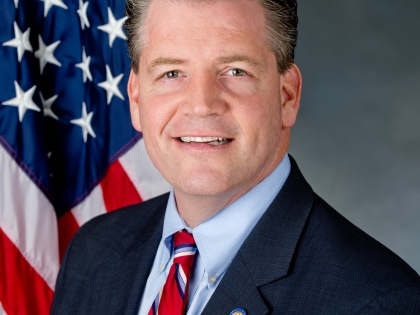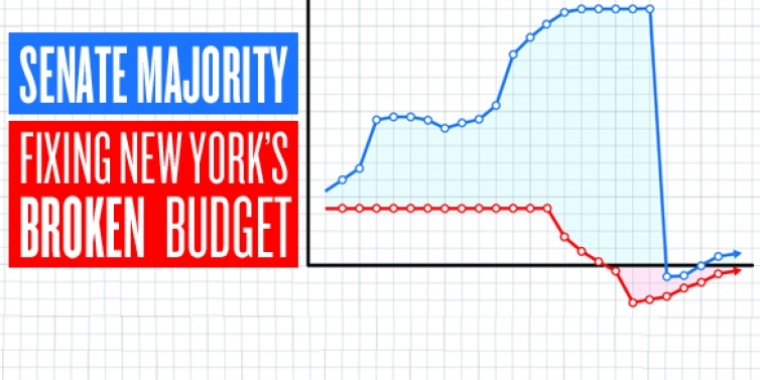
A National Model: U.S Senator Gillibrand takes Senator Murphy's Opioid Legislation to Washington
July 17, 2017

Carmel, NY - The grim statistics serve to emphasize that an opioid epidemic is sweeping through our communities. According to the New York State Department of Health, the number of prescription opioid-related deaths rose 1,300 percent from 2004 to 2015, from 13 deaths in 2004 to 185 deaths by 2015. Nationally, over 15,000 people died in 2015 from overdoses related to pain relievers, more than 3.5 times the amount in 1999. Appalled by these statistics, Senator Terrence Murphy sponsored legislation to curb the over-prescription of opioids for patients with short-term, acute pain. Passing both Senate and Assembly unanimously, Governor Andrew Cuomo signed the bill, S8139, into law in 2016.
When U.S. Senator Kirsten Gillibrand announced the Opioid Addiction Prevention Act today at Putnam Hospital Center, the first person she turned to thank was Senator Murphy. The impetus for Senator Gillibrand's bipartisan legislation sprung from Senator Murphy's bill. Among the many elected officials, hospital staff and community service providers on hand to support the announcement of the Opioid Addiction Prevention Act were Putnam County Executive MaryEllen Odell, Assemblyman Kevin Byrne, Assemblywoman Sandy Galef, and Peter Kelly, President of Putnam Hospital Center.
"Today marks a pivotal point in our continued fight against the heroin and opioid epidemic," said Senator Murphy. "When this legislation gets passed by the Federal government it is going to be a game changer. The passage of last year's seven-day limit for opioids now serves as a national model, and today Senator Gillibrand is bringing further attention to this devastating epidemic. It is time for this to end - no more thirty-day scripts. Standing alongside Senator Gillibrand proves this is not about politics but saving the lives of vulnerable Americans. I thank her for her efforts and look forward to our continued partnership on this critically important issue."
"Forty-one people are killed every day by an overdose of opioids. Too many lives have been destroyed, too many families have been torn apart, and too many communities all over New York are suffering because of this tragic epidemic," said Senator Gillibrand. "In 2012, health care providers wrote 259 million prescriptions for opioid pain relievers - enough for every American adult to have their own bottle. The Opioid Addiction Prevention Act will target over-prescription, one of the root causes of the opioid addiction crisis. I am urging my colleagues in Congress to pass this measure to help curb the growing opioid crisis."
Susan Salomone, Executive Director, Drug Crisis In Our Backyard said, "The need to prevent future addiction is critical. For every person addicted to an opioid, seven more are affected. On behalf of Drug Crisis in our Backyard, we thank the Senator for this important legislation that will help to change the culture in the medical community relative to prescribing opioids for acute pain."
The Opioid Addiction Prevention Act will require medical professionals to certify, as part of their Drug Enforcement Agency (DEA) registration, that they will not prescribe an opioid as an initial treatment for acute pain in an amount that exceeds a seven-day supply, and may not provide a refill as part of that initial prescription.
Under current federal law, a medical professional must register with the DEA in order to be allowed to prescribe a controlled substance in the United States. This registration must be renewed every three years. This legislation would require medical professionals to certify, as part of their DEA registration, that they will not prescribe a schedule II, III, or IV opioid as an initial treatment for acute pain in an amount that exceeds a seven-day supply, and may not provide a refill as part of that initial prescription.
Share this Article or Press Release
Newsroom
Go to Newsroom
Senator Murphy finds silver lining in late budget
April 10, 2017

Senator Murphy comments on bogus budget process
April 5, 2017

